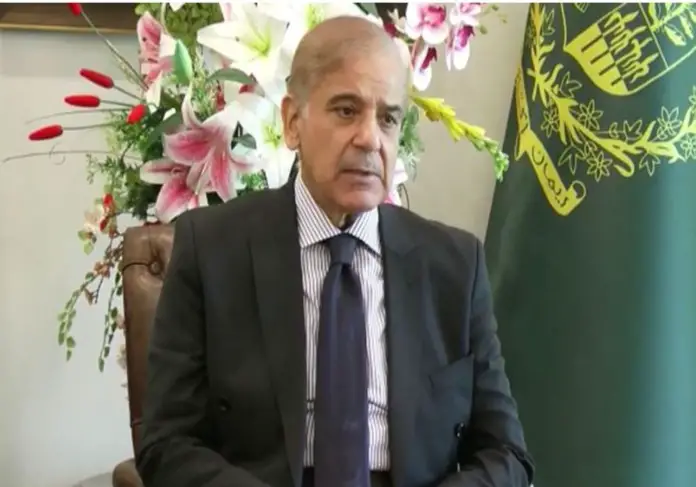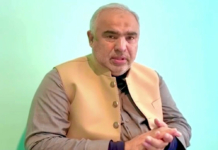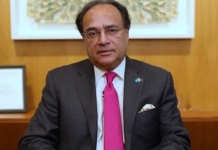Prime Minister Shehbaz Sharif has reportedly approved the formation of a task force to oversee the implementation of the rights of minorities after the National Assembly (NA) unanimously passed a resolution over the matter.
A notification issued by the Prime Minister’s Office a few days ago stated, “In light of the resolution passed by the National Assembly on May 9, the prime minister has been pleased to approve the constitution of the task force on minorities to oversee the implementation of rights of minorities in light with the decision of the apex court.”
The task force, consisting of 23 parliamentarians, senators and ex-officio members, will be headed by MNA Dr Ramesh Kumar Vankwani, who is also the patron-in-chief of the Pakistan Hindu Council.
According to the “terms of reference” enlisted in the notification, the chairman of the task force will hold the status of a federal minister, while the body will play an advisory role.
The task force shall monitor and oversee all the affairs of the protection of rights of minorities in the light of decisions taken by the apex court, it said, adding that the body will also have to submit quarterly reports on the developments to the premier.
Moreover, all the provincial governments and administrations have been instructed in the notification to provide full support and assistance to the task force in discharging its functions. Following the orders, Dr. Vankwani took to Twitter saying that such a step had been taken “for the first time in the history of Pakistan”.
“Parliamentarians unanimously passed a resolution to set up a task force for the rights of minorities and Prime Minister Shehbaz Sharif passed orders on its implementation … this reflects concrete steps taken by the present government for the protection of minorities,” he tweeted.
As chairman of the task force, Vankwani continued, “I would like to address the feelings of insecurity of the minorities… Recommendations will be made for the solution of the problems faced by the minorities and we will take people from all the segments of the society along with us,” Dr. Vankwani promised, asserting that countering anti-Pakistan propaganda regarding minorities at the global level was the top priority of the task force.
He further went on that eight years ago, on June 19, the Supreme Court delivered a landmark judgement that “gave a glimmer of hope to minorities across the country”. During this time, the governments of PTI chairman Imran Khan and PML-N supremo Nawaz Sharif ended. “Finally, in this coalition government, the implementation took place,” he added.
Dr. Vankwani promised that he would soon launch a new campaign for the protection of the rights of minorities in collaboration with the members of Parliament, civil society, human rights activists, friends of the media and diplomats.
In 2014, the top court had ordered the constitution of a national council of minorities’ rights for the monitoring of the practical realisation of the rights and safeguards provided to the minorities under the constitution and law.
The council would also be mandated to frame policy recommendations for safeguarding and protecting minorities’ rights by the provincial and federal governments.
The apex court had also ordered the formation of a special task force to protect minorities’ worship places, saying, “Special Police Force [to] be established with professional training to protect the places of worship of minorities.”
In a detailed 32-page decision, then chief justice Tassaduq Hussain Jillani had ordered federal and provincial governments to ensure a quota of minorities in all services.
However, over the years, reports had concluded that the state had failed to implement the orders of the apex court.
One such report titled “Justice Yet Afar”, released in 2021, had observed that the Supreme Court bench had conducted 23 follow-up hearings and passed nearly six dozen orders, yet Pakistan stood 21 years away from the finish line of full implementation, considering the existing pace of compliance.







